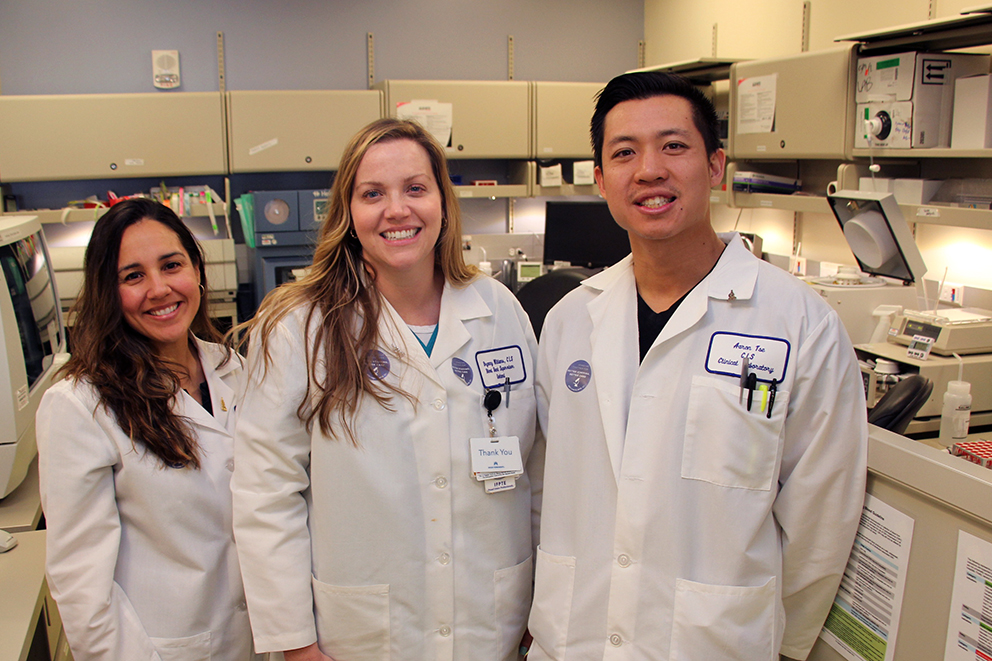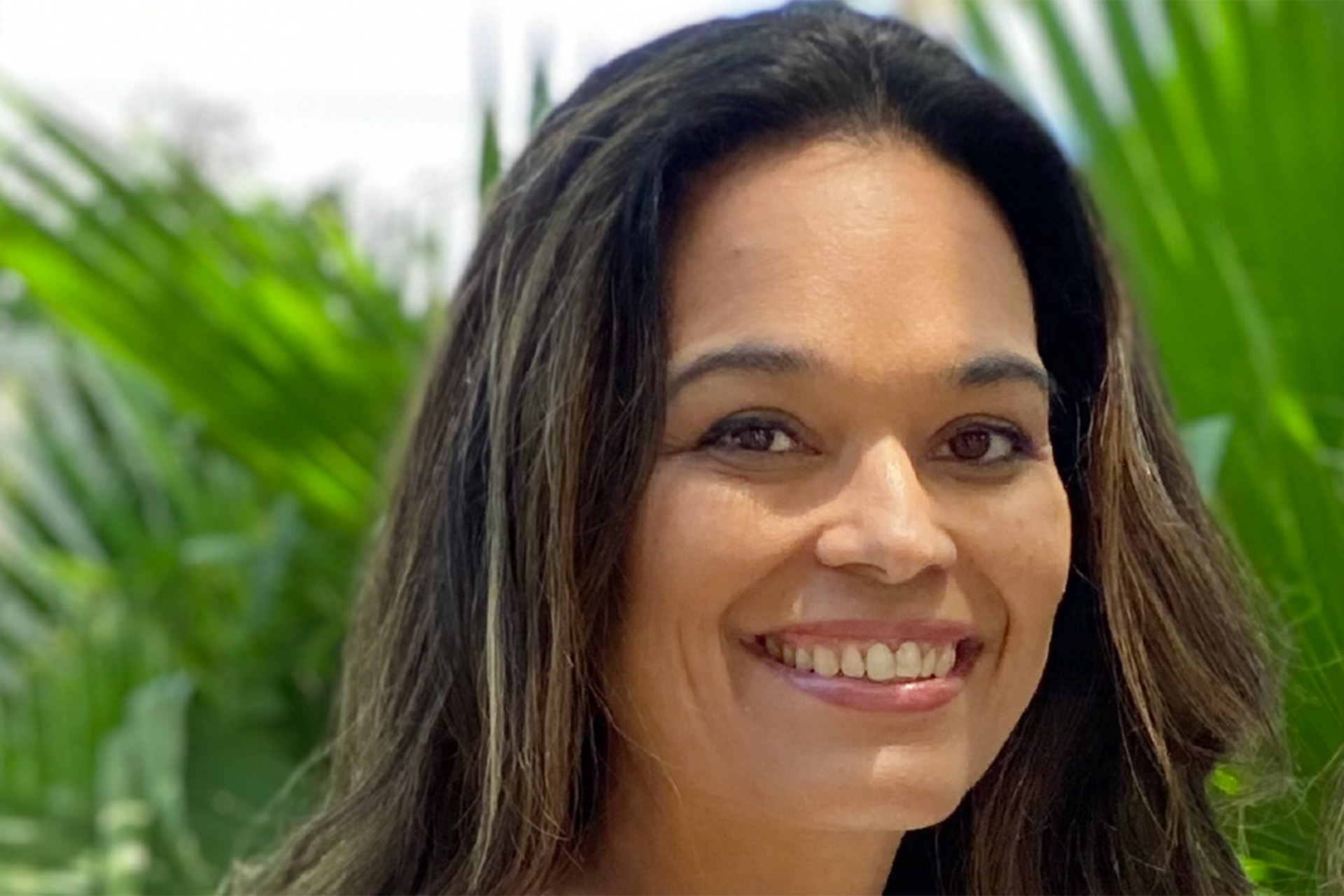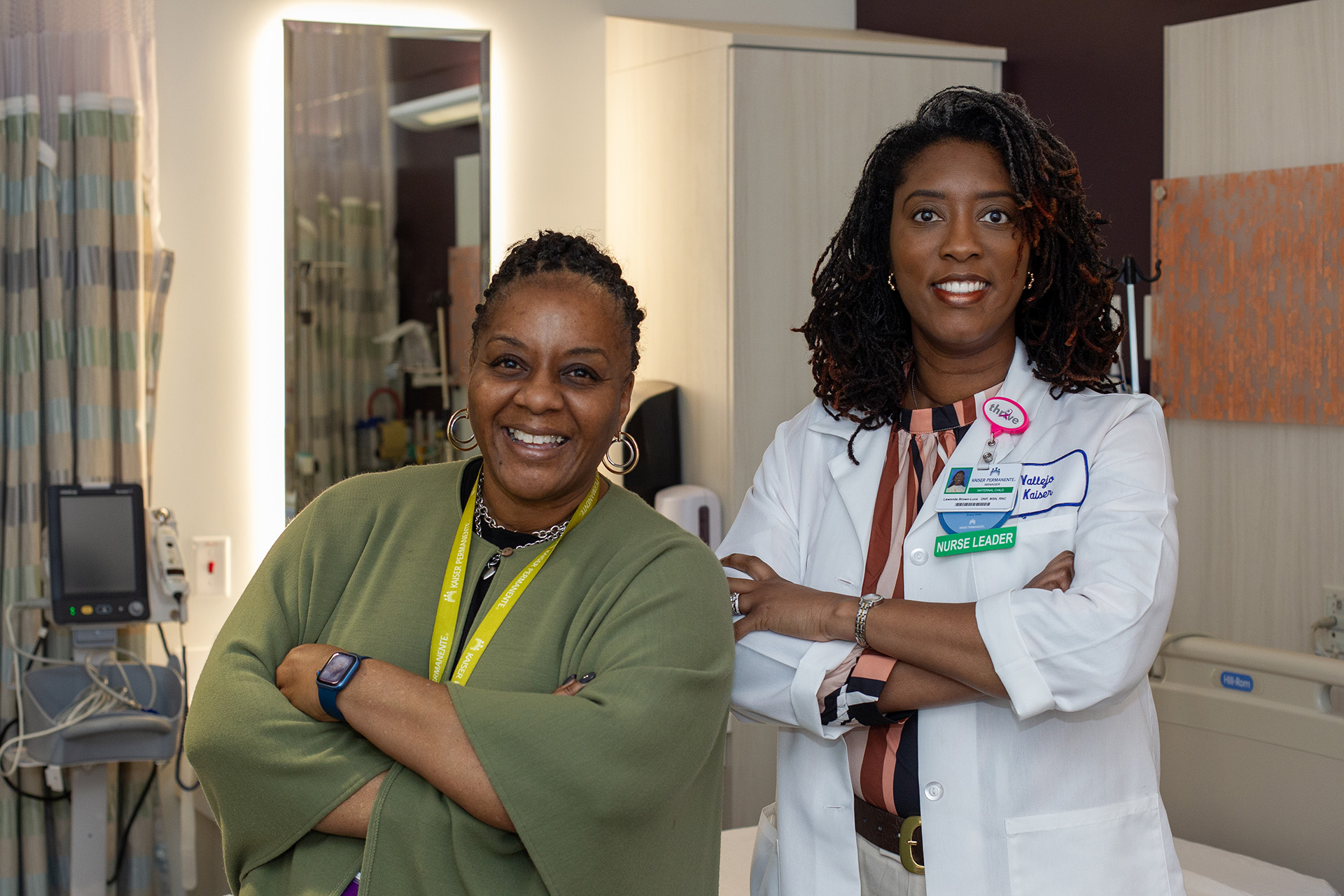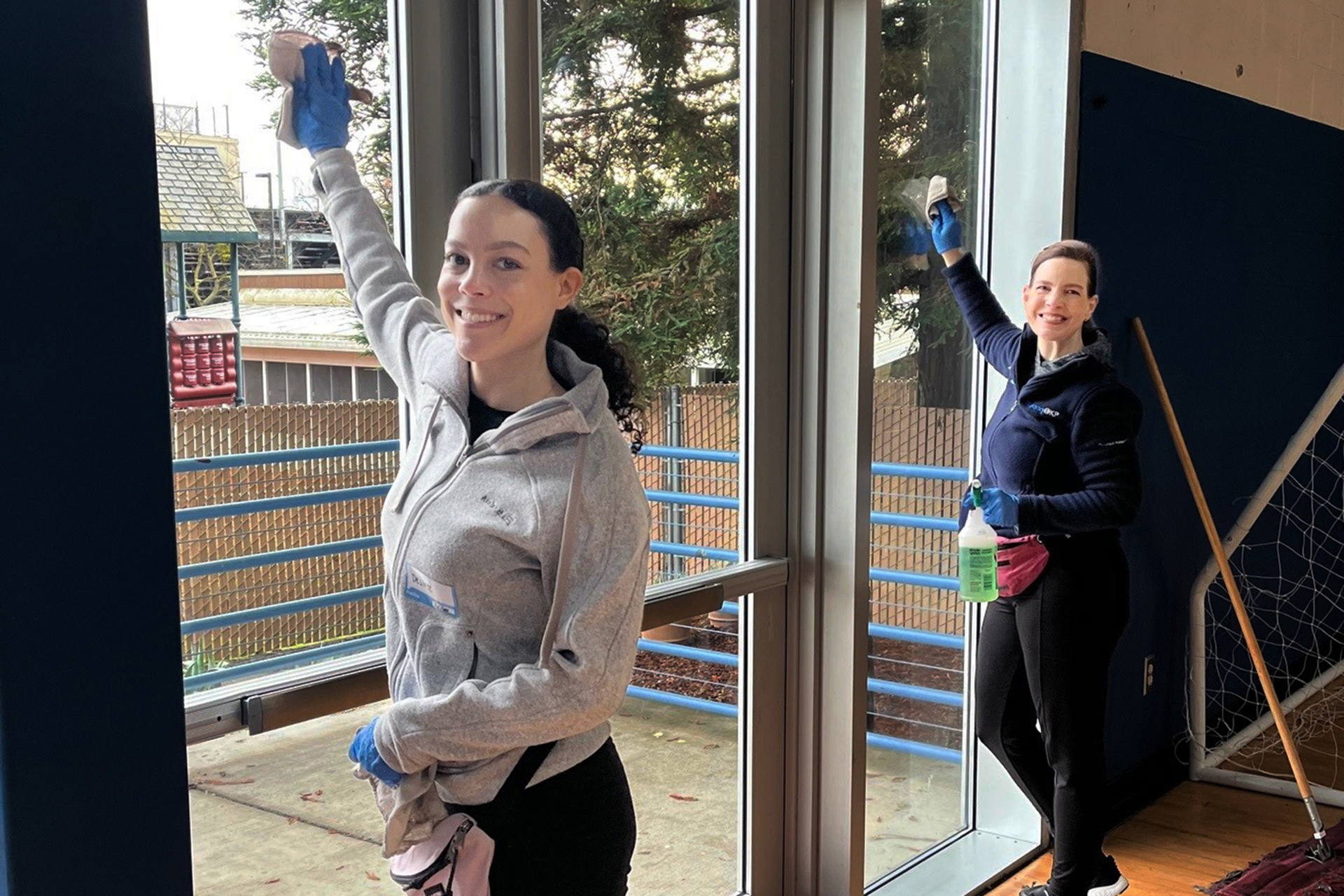In honor of Lab Week, meet some of Kaiser Permanente Northern California’s lab professionals who work behind the scenes to help clinicians diagnose, treat, and manage disease. Pictured, Bryonny Williams (center) poses with part of her team at the Kaiser Permanente Oakland Medical Center.
Bryonny Williams got her first taste of lab work in a high-school biology class.
“We got to do some DNA analysis of blood, and I thought, ‘This is really cool,’” Williams explained.
When it came time for college, she chose a Medical Laboratory Science program, and she’s been a licensed clinical laboratory scientist (CLS) for 18 years. Williams has also completed the American Red Cross blood bank specialist training.
Today she’s the supervisor of the Kaiser Permanente Oakland Medical Center Blood Bank, where a small team of clinical lab scientists works to ensure that when a patient needs blood or a blood product, the correct match is ready to go. The work is fast-paced and can be high-stress, but Williams said she likes that.
“It’s important work,” she said. “You have to work quickly and 100 percent accurately because patient lives can depend on it.”
Keeping Patients Top of Mind
Kaiser Permanente’s clinical lab staff work in 24 labs across Northern California. That includes 3 large regional labs in Berkeley, Richmond, and San Jose and smaller labs at each of the organization’s 21 hospitals. The lab staff also includes certified pathology assistants, pathology technical assistants, medical secretaries, receptionists, and phlebotomists.
In addition to running hospital blood banks, clinical lab staff perform highly complex testing to ensure that doctors, nurses, and other clinical staff have the information they need to diagnose, treat, and manage a variety of conditions such as diabetes, heart disease, and cancer, or infectious diseases such as influenza, tuberculosis, and HIV. Lab staff also conduct tests to detect DNA markers for diseases with a known genetic component.
Medical laboratory technicians, such as Amber Miller, help support clinical lab scientists by performing some of the 90 million tests that Kaiser Permanente’s Northern California labs perform each year.
Miller has an associate’s degree and works at the Kaiser Permanente South Sacramento Medical Center, where she deals with hundreds of patient samples each day. It’s behind-the-scenes work — but she said she never loses sight of the fact that each test tube represents a person and his or her story.
“As part of our quality control, we look at previous test results so we can see when people are getting better or getting worse,” Miller said. “Even though we never directly interact with the patients, we care about their health, their well-being, and their recovery.”
Changing Technology, Rewarding Work
Technology is changing the lab, creating better, faster, and more specific tests. For example, Clinical Lab Scientist Jerome Boulton, who has worked at the regional lab in Berkeley for 9 years, said identifying the bacteria causing a urinary tract infection used to take up to a full day, but now lab scientists can have an answer in a couple of hours.
Boulton works in a microbiology section, testing specimens for respiratory infections such as tuberculosis. The day-to-day work can be repetitive, but Boulton said it’s like solving a puzzle, and he focuses on the fact that he’s helping people get the diagnosis and treatment they need to get better.
“Every once in a while, you get a note from a doctor that says, ‘Thank you. That’s the answer we’ve been looking for, and now we know the best treatment to go forward.’”
Like most employees, Boulton is also a Kaiser Permanente member and sometimes a patient.
“I’m proud to work for Kaiser Permanente,” he said. “As a patient I have felt well taken care of, and I hope the work we do in our labs makes our patients feel that way, too.”
Learn more about the work of Kaiser Permanente phlebotomists on Kaiser Permanente Share.





This Post Has 3 Comments
Thank you for all your hard work!
I want to say “KUDOS” to all those Laboratory employees, especially those CLSs’ who work tirelessly day and night to make sure that patients’ lives are preserved through our working quickly with precision and hundred percent accuracy. A special thanks to all those CLSs’ who work in blood transfusion medicine under the auspices’ of our BB supervisor, medical director, and our laboratory director.
Great to be one of those “small team ” of health care professionals, who make a difference in the lives of others with our skills and abilities. Thank you so much for having a comment section.
THANK YOU for all your hard work.